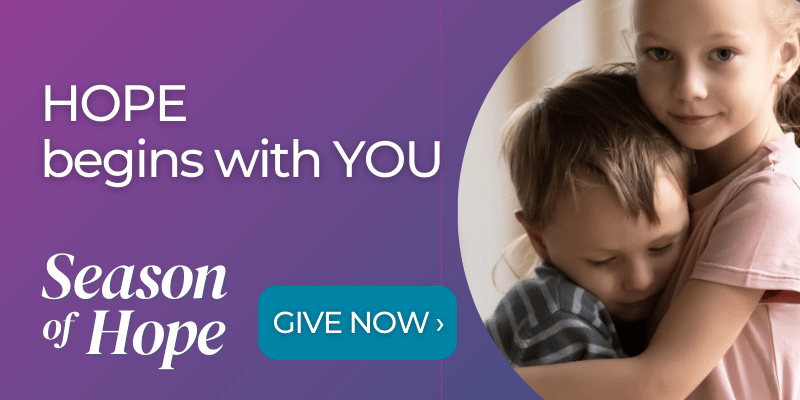
An Ounce of Prevention …
February 14, 2018
Written by: Guest contributor, Lisa Shaffer
Lisa Shaffer and her husband, Steve Bartram, are long-time CRC supporters. Lisa served on the Encinitas City Council from 2012-2016.
Did you know that CRC not only provides comprehensive services to victims of domestic violence (DV) but also works to prevent DV by teaching high school students about dating violence and how to develop healthy relationships?
What are physically and emotionally abusive dating behaviors? What can I do to help a friend in an abusive dating relationship? What are gender stereotypes and how can we overcome them? How can I express my feelings and emotions safely in a relationship? How can I express sexual boundaries clearly to a dating partner? Where is the line between checking in and digital stalking? How do you know when it’s ok to go further?
Jani Sepanik is the DV Prevention and Education Coordinator at CRC. She goes to high schools in our area and teaches a Teen Dating Violence Prevention program that addresses these and other topics in an in-depth series of classes or workshops with student leaders. These students then become peer counselors helping other youth learn safe and healthy patterns that they can take into adulthood.
As we develop and support programs to help victims and hold perpetrators accountable, we also need to look more deeply at how to prevent these tragic behaviors from ever happening.
Domestic violence (DV), sexual harassment and sexual assault are problems throughout our society. As we develop and support programs to help victims and hold perpetrators accountable, we also need to look more deeply at how to prevent these tragic behaviors from ever happening. Campaigns aimed at teaching children and youth to use seatbelts, stop littering, recycle, and not to smoke have been effective in establishing good habits and avoiding undesirable behavior. When it comes to prevention of domestic violence and sexual abuse, the same strategies can be equally effective.
We know that DV is a learned behavior and that it can be unlearned. And we also know that early intervention with teens, teaching them about healthy and unhealthy dating, can prevent abusive practices from ever developing. It can empower potential victims to set boundaries and practice self-care, and it can provide support to potential abusers to understand better ways to communicate, relate, and develop healthy intimate relationships.
Many parents and teachers feel ill-equipped to address these and related important questions, but early intervention can prevent unacceptable behaviors later on. Rather than a one-time assembly, the CRC program digs deep and makes a lasting impact. The Teen DV Prevention programs complement mandated anti-bullying curricula that also address healthy behaviors.
There are two big challenges in this program. One is the willingness of schools to offer the program. In our area, there are already many extra-curricular programs available and kids are already overscheduled. It’s hard to fit in another program, no matter how worthy. The second challenge is the perpetual challenge of resources. Jani is the only instructor at CRC for this program. With additional funds to hire additional staff, a more extensive outreach effort could be mounted, starting with training more trainers who could offer the program in more venues with more schedule flexibility. Church youth groups and other non-school organizations could offer teen dating violence prevention as part of their programs if trainers were available. As the current effort “graduates” more student leaders, the students can spread the message as well.
The opportunity to reduce DV and sexual harassment through early intervention needs to be recognized as an important public health initiative.
Successful prevention campaigns require persistence and pervasive messaging. The opportunity to reduce DV and sexual harassment through early intervention needs to be recognized as an important public health initiative. Once the bad habits and violent behavior are established, it’s a lot harder to intervene.
What can you do?
- If you have children, encourage them to participate in Teen Dating Violence Awareness & Prevention programs if offered at their schools. If the program is not offered, encourage the school administration to contact CRC and set it up. Learn More
- Donate to CRC to enable them to expand their reach. Learn More
- Write or call your state legislators. The California Partnership to End Domestic Violence (around 100+ agencies in California) is an advocacy group for DV survivors. They are mounting a major campaign to get more funding from the California state legislature for DV programs. Encourage the state to invest in a safer future for everyone by offering early intervention and training.
I end almost every article I write about CRC with an expression of gratitude. I am grateful that I have never needed the services they offer, and I am aware that any of us could, at any time, become victims. I am grateful for the hard-working and dedicated staff and volunteers who make the organization so successful. We are fortunate to have them in Encinitas, serving the north county region.
[helpme_button style=”three-dimension” size=”large” bg_color=”#00A8A1″ txt_color=”#fff” outline_skin=”#444444″ outline_hover_skin=”#fff” icon=”theme-icon-video” url=”https://crcncc.org/education-outreach/” target=”_blank” align=”left” id=”Button ID” margin_bottom=”15″]Learn more about our Teen DV Education Program[/helpme_button]
[helpme_button style=”three-dimension” size=”large” bg_color=”#00A8A1″ txt_color=”#fff” outline_skin=”#444444″ outline_hover_skin=”#fff” icon=”theme-icon-video” url=”http://www.loveisrespect.org/teendvmonth/” target=”_blank” align=”left” id=”Button ID” margin_bottom=”15″]Learn more about Teen Dating Violence Prevention & Awareness Month [/helpme_button]

